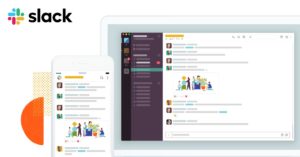Build Your Own Amazon
Podcast: Play in new window | Download
Subscribe: RSS

When I worked as an engineer at Amazon, I would arrive at the office every day before 6:30am.
Amazon’s enormous campus is in downtown Seattle. The company expands across the city like a massive, growing organism composed of towering buildings and ecospheres. The constant wet mist of Seattle always seems lighter within Amazon campus, perhaps thinned by the optimism that Amazon inspires in its workforce.
Yes, Amazon is truly inspiring.
For all the cynical headlines, the longevity of the workforce speaks for itself. Brilliant people stay employed at Amazon longer than they stay with religion. The culture is more rewarding and the tenets are more modern.
I stayed at Amazon for 8 months. I think of my time there as a kind of cultural immersion, like a study abroad in a foreign land. 8 months is longer than a good affair and shorter than a bad marriage. 8 months was long enough for Amazon to become a part of me.
You can take the entrepreneur out of Amazon, but you can’t take Amazon out of the entrepreneur.
At 6:30am, there is no traffic as you drive across the bridge from Bellevue to Seattle. Podcasts sound better at 6:30am. At 6:30am, even the Amazon workforce is still rubbing the sleep out of its eyes before beginning their march into the office.
Parking at Amazon cost me $25 per day, a daily reminder of Amazon’s prideful frugality. My blue badge gave me access to most of the buildings across the sweeping campus. It was like having a ticket to huge theme park. And at 6:30am, I had all of the rides to myself.
Walk into a random building in the Amazon campus, and study a microcosmal neuron of Jeff Bezos’s brain.
Peruse a gallery of movie posters from Amazon Prime Video. Study the whiteboard diagrams of a team working on a distributed database problem. Engorge yourself in esoteric policies listed within a vacant customer support engineering colony.
Every Amazon building is like that of a well-heeled college campus.
Amazon’s perks are chosen with extreme subtlety. Yes, the offices are nice, because nice offices are a fixed cost. No, there is not free food, because ecommerce doesn’t have the margins for that (unless you are an elite engineer working on a secret project at high risk of leaving the company).
Amazon offices have glorious elevators for rising to the top of the Seattle skyline, and glorious chairs for reading in the middle of the barren warrens.
If you read a business book on a Kindle in an Amazon office, the contents of the book take on new meaning. Amazon embodies business, and through the lens of a business book, the finer details of Amazon’s physical grandeur take on new life.
The empty cubicles come alive with determinism. Your coffee seems to ripple in your paper cup, livened by the impending resonance of today’s economic value creation.
As the sun rose over Seattle, I studied how to escape the life of a commodity engineer.
I read Netflixed, Hatching Twitter, and Founders at Work. I read books about chakras and music composition. I reread The Everything Store, and then read interviews from Hedge Fund Market Wizards. Contrasting the books while walking through Amazon, I felt like I was inside the mind of Jeff Bezos, in both a physical and empathetic sense.
I read The 48 Laws of Power, and considered my current state of subjugate, Java-based servility.
When I left Amazon, it was not out of resentment or dissatisfaction. It was out of education. At Amazon, one can learn how to build Amazon. Amazon was not built through master planning, but through incremental, adjacent expansion.
Once you see how to expand from a book store to the backbone of the Internet, you see how to expand from anything to everything. And so I started a podcast.
We are hiring for Software Daily and for a new company, Supercompute. If you are interested in working with us, send me an email: jeff@softwareengineeringdaily.com














